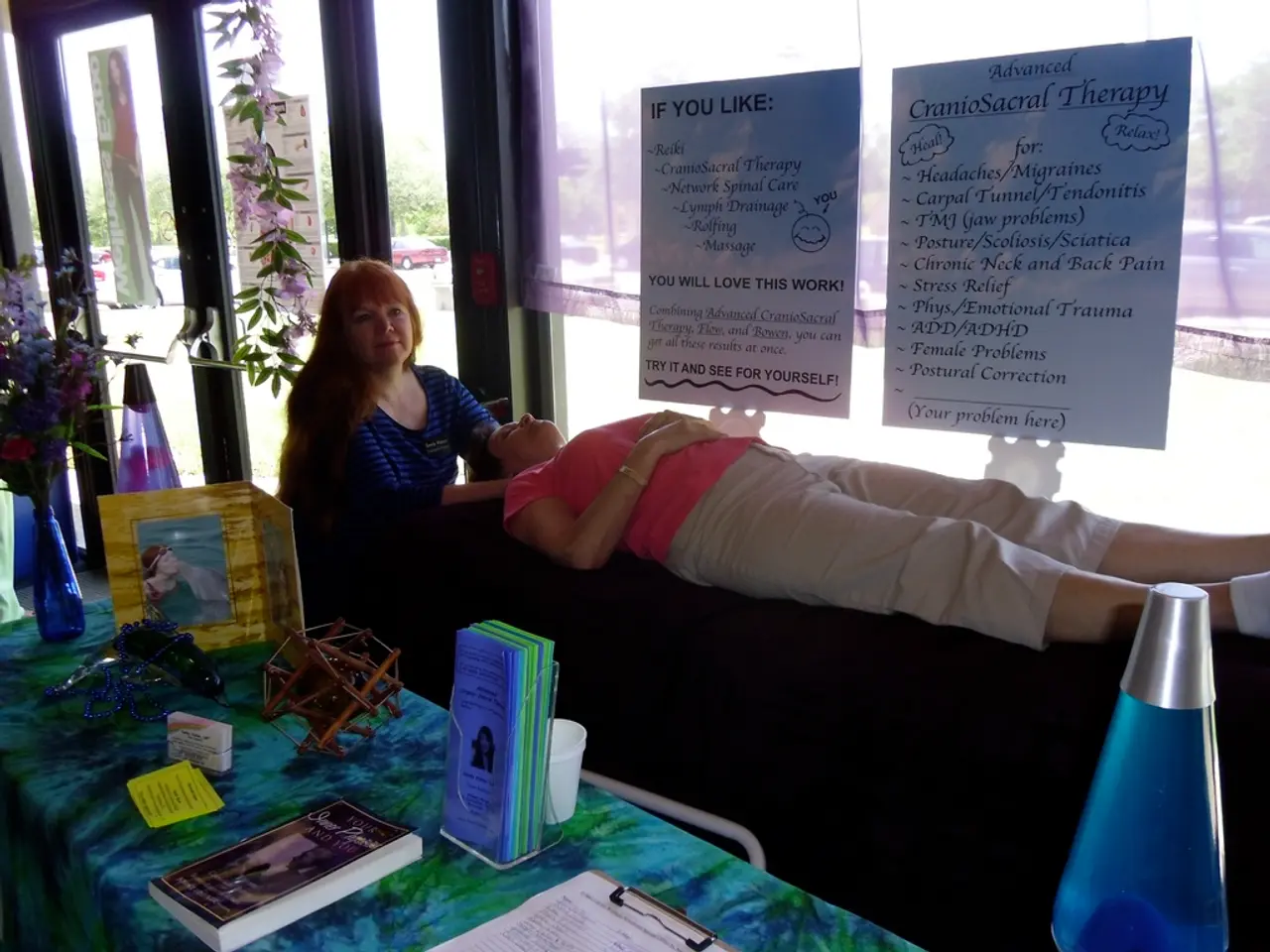Techniques for Enhancing Self-Understanding through Emotional Intelligence
In our daily lives, managing emotions effectively is crucial. Here are some additional techniques for enhancing emotional intelligence, beyond self-awareness, self-journaling, mindfulness, and embracing feedback.
The purposeful pause is a valuable strategy. By taking a deliberate pause between experiencing an emotion and reacting, rational thinking can catch up, preventing impulsive, emotionally driven responses.
Active listening at a deep level is another technique. This involves tuning into not just words but the underlying emotions, values, and beliefs of others by maintaining eye contact, dropping distractions, asking clarifying questions, and truly focusing on the speaker.
Self-regulation is essential for maintaining calm under pressure and adapting to change. Practicing control over emotions, impulses, and physiological reactions is key to this.
Developing social awareness (empathy) is another important aspect. Improving your ability to read others’ emotional states through nonverbal cues, active listening, and understanding their perspective, needs, and concerns is crucial for effective relationship management.
Building skills to effectively communicate, resolve conflicts, inspire and influence others, and foster trust and collaboration in both personal and professional relationships is also vital.
Stress management techniques, such as managing emotional spirals, incorporating moments of joy ("joy-snacking"), and maintaining resilience through adversity, can also boost emotional intelligence.
Regularly focusing on positive aspects and expressing gratitude can rewire the brain to relate more positively with oneself and others, further enhancing emotional intelligence.
Identifying emotional triggers can be done by reflecting on past situations where strong emotions were felt. Building self-compassion involves treating oneself kindly when making mistakes or feeling down. By tuning into physical sensations, one can better understand their emotional state and take steps to regulate it.
Building self-awareness is an ongoing process that varies from person to person. Consistency in mindfulness, journaling, and reflection is key. Learning to manage reactions to triggers can be done through techniques like deep breathing or stepping away from the situation.
Self-awareness is the ability to recognize and understand one's own emotions, thoughts, and behaviours. Mindfulness is a tool to build self-awareness, involving paying full attention to the present moment without judgment.
Writing down situations that tend to bring up strong emotions can help in understanding them better. Approaching feedback with an open mind and heart is essential for personal growth. Embracing feedback from others can provide valuable insights into one's behaviour and reactions.
It's normal to feel uncomfortable when uncovering parts of oneself that are not liked, but self-awareness is about being honest and the first step toward self-improvement. Journaling is a powerful method for building self-awareness, as writing down thoughts and feelings helps process emotions and gain clarity.
Techniques for emotional regulation include pausing and breathing deeply, labeling emotions, and engaging in calming activities. Practicing mindfulness can help one become more aware of their emotional state and thought patterns. The body often gives clues about emotional state, such as heart racing when nervous or tightening of shoulders when stressed.
By incorporating these techniques into our lives, we can enhance our emotional intelligence, leading to improved decision making, leadership, motivation, communication, and relationship building.
- To boost personal growth and emotional intelligence, consider incorporating regular exercise and fitness routines, as physical activity can help regulate emotions and improve overall health.
- For effective learning and self-development, pay attention to education resources focusing on mindfulness, emotional regulation, and interpersonal relationships. These skills are crucial for daily life and personal growth.
- As part of a well-rounded personal growth plan, make time for learning new concepts related to health, wellness, and personal development, such as learning about the benefits of practicing gratitude, managing stress, and building resilience.




